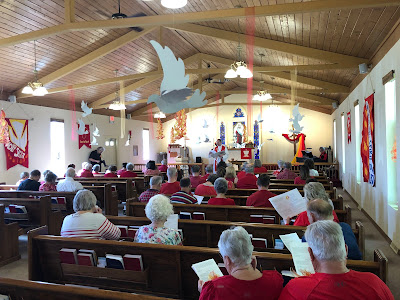What's the worth of all the work of my two hands?

Luke 16-1-13:
Then Jesus said to the disciples, “There was a rich man who had a manager,” and charges were brought to him that this man was squandering his property. So he summoned him and said to him, ‘What is this that I hear about you? Give me an accounting of your management, because you cannot be my manager any longer.” Then the manager said to himself, ‘What will I do, that that my master is taking the position away from me? I am not strong enough to dig, and I am ashamed to beg. I have decided what to do so that, when I am dismissed as manager, people may welcome me in their homes’. So, summoning his master’s debtors one by one, he asked the first, ‘How much do you owe my master?’ He answered, ‘A hundred jugs of olive oil’. He said to him, ‘Take you bill, sit down quickly, and make is fifty’. Then he asked another, ‘And how much do you owe?’ He replied, ‘A hundred containers of wheat’. He said to him, ‘Take your bill and make it eighty’. And his master commended the dishonest manager because he has acted shrewdly; for the children of this age are more shrewd in dealing with their own generation than are the children of light. And I tell you, make friends for yourselves by means of dishonest wealth so that when it is gone, they may welcome you into the eternal homes.
Whoever is faithful in very little is faithful also in much; and whoever is dishonest in very little is dishonest also in much. If then you have not been faithful with the dishonest wealth, who will entrust to you the true riches?
And if you have not been faithful with what belongs to another, who will give you what is your own? No slave can serve two masters; for a slave will either hate the one and love the other, or be devoted to the one and despise the other. You cannot serve God and wealth.”
A parable about enough:
This parable about the “shrewd manager” is full of ambiguities. It seems the only thing many of the commentaries agree on is that this parable is confusing. I agree.
The confusion seems to be in the terse nature of this parable. Jesus doesn’t explain where the fifty jugs of olive oil or the twenty containers of wheat came from. Were they part of the manager’s commission or were they part of an forbidden interest (Deut. 23: 19-20)? If you answer yes to either of these questions, than the ambiguity is finessed out of the parable, and we have a clear moral imperative.
The issue is, if there is a commission or interest on the debt, we’re left to assume that. Jesus never speaks to it.
The final and perhaps most challenging difficulty lay in the fact that this shrewd manager is held up as an example.
However, the manager’s shrewdness is about the manager.
By cutting the debt of the master’s debtors, the indebtedness is transferred from the master to the ex-manager.
This is no parable about charity because in the end, the action is directed toward the self rather than the other in need.
What are we to do with all these ambiguities?
I hope to let the tensions pull, but one commentator makes a nice point: …the problem with the unjust steward is not that he “gifted” his master’s debtors (even if his master commended him for this), but that his gifting was poisoned by the ulterior motive of receiving something back from those whom he gave. Jesus encourages his listeners to imitate the man’s scatterings of wealth in order to receive the gift that is beyond return and outside of any economy of exchange –an “eternal” tenting in which one is received not into a settled domain but into a triune life that is eternally on the move.” (Scott Bader-Saye)
Mr. Bader-Saye is noticing that the NRSV translates “skeenas” as homes, rather than tents. Perhaps what Jesus intends for this parable is an invitation into a life (or theology) of enough. Rather than storing up debt of others to secure one’s future, we’re commended to freely disperse debt and live into a community where we care for and are cared for.
More thoughts to come...


Comments
Post a Comment